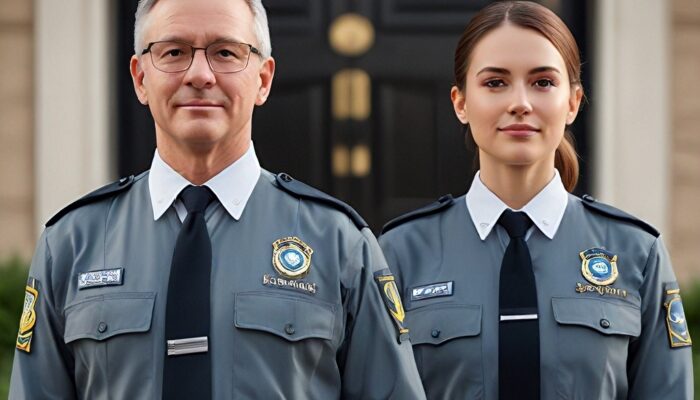Exploring Security Guard Jobs: Opportunities and Insights
Security guard jobs play a crucial role in maintaining safety and order in a variety of settings, including businesses, residential areas, shopping centers, and public spaces. As a vital part of the security industry, these positions offer a range of responsibilities, skill sets, and career paths that can cater to a wide variety of individuals.

What Do Security Guards Do?
Security guards are responsible for protecting people, property, and assets from potential threats, including theft, vandalism, and violence. Their duties often vary depending on the type of environment they are guarding, but common tasks include:
- Patrolling premises to observe and report any suspicious activity.
- Monitoring surveillance equipment such as CCTV cameras and alarm systems.
- Enforcing rules and regulations to ensure a safe environment for employees, customers, and visitors.
- Responding to emergencies like fires, medical incidents, or unauthorized access.
- Detaining individuals who are involved in criminal activity until law enforcement arrives.
- Writing reports about incidents, accidents, or unusual occurrences.
These duties can be performed in a variety of settings, including corporate offices, retail stores, hospitals, factories, airports, and even residential areas. The scope of a security guard’s responsibilities can also be influenced by the level of security required at a given location, whether it’s a high-security government building or a small retail store.
Types of Security Guard Jobs
Security guard roles can be divided into several categories based on the nature of the work, the location, and the level of responsibility involved. Here’s an overview of the most common types:
1. Uniformed Security Guards
Uniformed security guards are the most recognizable type of security personnel. They are typically assigned to public-facing positions where their presence serves as a deterrent against criminal activities. These guards are often seen at shopping malls, office buildings, and event venues.
- Key Responsibilities : Patrolling premises, enforcing rules, and interacting with the public.
- Skills Needed : Strong communication skills, conflict resolution, physical fitness.
- Certifications : Basic security guard training and sometimes specific certifications based on the location.
2. Armed Security Guards
Armed security guards carry firearms or other weapons and are typically employed in high-risk environments, such as banks, government buildings, or private security companies. Their role demands a higher level of training and responsibility.
- Key Responsibilities : Protecting valuable assets, responding to threats using force when necessary, and ensuring public safety.
- Skills Needed : Firearm proficiency, crisis management, higher physical fitness.
- Certifications : State-issued certifications, weapons training, background checks.
3. Event Security Guards
Event security guards are hired to provide protection at events like concerts, sports games, or public gatherings. They are responsible for crowd control, checking for prohibited items, and ensuring the safety of attendees and performers.
- Key Responsibilities : Checking bags, managing crowd flow, responding to disturbances.
- Skills Needed : Crowd management, communication, vigilance.
- Certifications : Event security training, CPR certification.
4. Corporate Security Guards
Corporate security guards are employed by businesses to secure office buildings, warehouses, or industrial properties. Their role may include monitoring access points, screening employees and visitors, and ensuring the security of physical and digital assets.
- Key Responsibilities : Access control, surveillance, and assisting with emergency evacuation plans.
- Skills Needed : Tech-savvy (for monitoring surveillance systems), customer service, crisis management.
- Certifications : Corporate security training, sometimes a background in corporate safety procedures.
5. Residential Security Guards
Residential security guards are responsible for maintaining the safety of gated communities, apartment complexes, and private properties. Their duties may include monitoring entrance gates, conducting patrols, and verifying the identity of visitors.
- Key Responsibilities : Ensuring unauthorized individuals do not enter the premises, monitoring resident activity, and responding to calls for assistance.
- Skills Needed : Strong interpersonal skills, attention to detail.
- Certifications : Basic security guard training, sometimes CPR or first aid certification.
6. Industrial Security Guards
Industrial security guards are tasked with protecting factories, warehouses, and industrial sites, often with a focus on preventing theft, vandalism, and accidents. They may also be involved in monitoring hazardous materials or heavy machinery.
- Key Responsibilities : Access control, monitoring CCTV, ensuring compliance with safety regulations.
- Skills Needed : Knowledge of industrial safety procedures, observation skills, physical stamina.
- Certifications : Specialized training in industrial safety or hazardous materials handling.
Skills and Qualifications for Security Guards
While the specific qualifications may vary depending on the type of security guard position, some general skills and certifications are essential for all security guard jobs:
Key Skills
- Vigilance : The ability to stay alert and notice suspicious activities.
- Communication : Strong verbal and written communication skills to report incidents clearly and interact with the public.
- Problem-solving : Being able to assess situations quickly and make decisions on the best course of action.
- Physical Fitness : Many security jobs require standing for long periods or patrolling large areas, so physical endurance is often important.
- Customer Service : In many settings, security guards are the first point of contact for visitors, so being friendly and helpful is essential.
Required Certifications
- Security Guard License : Many states or countries require security guards to be licensed, which typically involves completing a background check and passing basic security training.
- First Aid/CPR Certification : Many security jobs require first aid training to be able to assist in medical emergencies.
- Firearm Certification : For armed security positions, guards need specialized training to carry and handle firearms safely.
Work Environment and Schedule
The work environment and schedule of security guards vary widely depending on the job type. For example:
- Indoor vs. Outdoor : Some security guards work in climate-controlled environments (like office buildings), while others may have to work outdoors in all weather conditions (like event security or industrial sites).
- Shifts : Security work can involve shifts at any time of the day or night. Some positions may require rotating shifts, weekend work, or on-call duties.
- Full-time vs. Part-time : Many security guard jobs are full-time, but part-time positions are also common, especially in retail or event security.
Comparing Security Guard Job Types
Here’s a comparison table that outlines key aspects of different types of security guard jobs:
| Type of Security Guard | Key Responsibilities | Skills Required | Common Work Settings | Certifications |
|---|---|---|---|---|
| Uniformed Security Guard | Patrolling, monitoring access, ensuring safety | Communication, conflict resolution, vigilance | Shopping malls, office buildings | Basic security guard training |
| Armed Security Guard | Protecting high-risk assets, using firearms if necessary | Firearm proficiency, crisis management | Banks, government buildings | Weapons training, state-issued certification |
| Event Security Guard | Crowd control, checking bags, managing disturbances | Crowd management, vigilance, communication | Concerts, sports venues, festivals | Event security training, CPR |
| Corporate Security Guard | Access control, surveillance, asset protection | Tech-savvy, customer service, crisis management | Corporate offices, warehouses | Corporate safety training, surveillance systems |
| Residential Security Guard | Monitoring entrances, verifying visitor identity, patrolling | Attention to detail, interpersonal skills | Gated communities, apartment complexes | Basic security training, CPR |
| Industrial Security Guard | Preventing theft, ensuring safety compliance, monitoring machinery | Industrial safety knowledge, physical stamina | Factories, industrial sites | Industrial safety training, hazardous materials |
Security guard jobs offer a range of opportunities for individuals seeking stability, variety, and career growth. Whether you’re interested in protecting a corporate office or working at a high-profile event, there are numerous paths you can pursue in this field. The job requires a blend of physical fitness, keen observation, and strong interpersonal skills, making it a vital career choice for those committed to safety and security. By obtaining the necessary training and certifications, you can advance in the security industry and take on more specialized roles as you gain experience.





